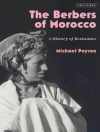Winner of the 2005 New Scholar Book Award given by Division F: History and Historiography of the American Educational Research Association
In 1893 Harvard University president Charles W. Eliot, the father of the modern university, helped implement a policy that, in effect, barred graduates of Jesuit colleges from regular admission to Harvard Law School. The resulting controversy—bitterly contentious and widely publicized—was a defining moment in the history of American Catholic education, illuminating on whose terms and on what basis Catholics and Catholic colleges would participate in higher education in the twentieth century.
In Catholic Higher Education in Protestant America, Kathleen Mahoney considers the challenges faced by Catholics as the age of the university opened. She describes how liberal Protestant educators such as Eliot linked the modern university with the cause of a Protestant America and how Catholic students and educators variously resisted, accommodated, or embraced Protestant-inspired educational reforms. Drawing on social theories of cultural hegemony and insider-outsider roles, Mahoney traces the rise of the Law School controversy to the interplay of three powerful forces: the emergence of the liberal, nonsectarian research university; the development of a Catholic middle class whose aspirations included attendance at such institutions; and the Catholic church”s increasingly strident campaign against modernism and, by extension, the intellectual foundations of modern academic life.












